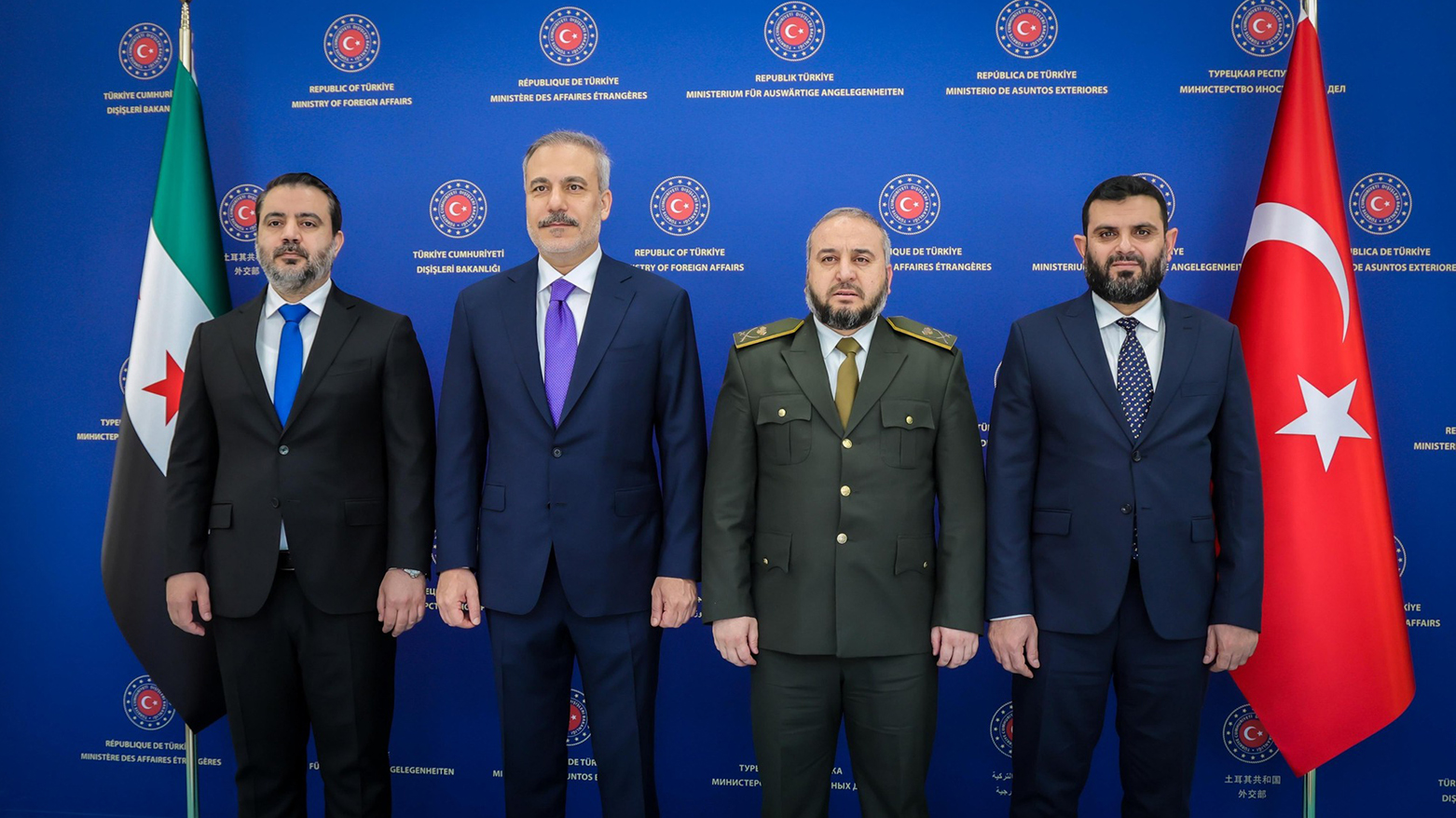Ankara Issues Stark Warning to YPG as Turkish-Syrian Ties Deepen
Following a high-level Syrian visit to Ankara, Türkiye issued a stark warning to the YPG, demanding it cease being a threat. The two nations deepened ties and jointly accused Israel of orchestrating chaos in Syria.

ERBIL (Kurdistan 24) – Türkiye’s Foreign Minister Hakan Fidan has issued a stark and direct warning to the YPG, stating that Ankara is beginning to see developments it finds "difficult to tolerate," a message delivered in the context of a significant high-level diplomatic meeting in Ankara that signaled a new era of deepening cooperation between Türkiye and Syria.
The pivotal meeting on Wednesday, saw a Syrian delegation that included Foreign Minister Assad al-Shaibani, Defense Minister Murhef Abu Qasra, and Intelligence Chief Hussein es-Seleme engage with their Turkish counterparts.
In a joint press conference following the discussions, the two foreign ministers laid out a vision for a renewed strategic relationship, while also presenting a unified front against perceived threats, most notably from Israel and the YPG.
Fidan dedicated a significant portion of his remarks to the situation in northeastern Syria, accusing the Syrian Democratic Forces (SDF) of failing to comply with a March 10 integration agreement with Damascus.
He asserted that the YPG is playing the "role of a spoiler in Syria," is "not integrating into the system," and is "ruining the positive atmosphere."
The Turkish minister delivered a pointed message, stating, "The YPG's position is not a tenable one. We are not blind to the YPG's tricks in Syria. At this point, we are beginning to see developments that we are finding it difficult to tolerate. We see that the organization's members have not left Syria, they should not think that we do not see it."
In a direct address to the group, Fidan declared, "My call to the YPG is; they should immediately stop being a threat to Türkiye and the region with the terrorists they have gathered from all over the world."
He underscored the gravity of his statement with a firm warning: "In an environment where Türkiye's security demands are not met in Syria, we have no chance of staying idle here."
The press conference also highlighted a strong convergence of views on Israel, with both ministers accusing it of actively destabilizing Syria.
Fidan identified Israel as "one of the biggest actors in this dark picture of the events in Sweida" and later referred to it as "the dark actor in Syria," whose "priority is to create chaos."
This sentiment was directly echoed by Syrian Foreign Minister Assad al-Shaibani, who stated that "Israel's repeated threats, as in previous years, have cast an eye on Syria's sovereignty" and are "endangering the security of our citizens."
Al-Shaibani elaborated on Syria’s internal challenges, characterizing the recent events in Sweida as "sectarian strife fabricated by Israel."
He affirmed that the state is committed to protecting the province and its inhabitants, stressing that "the Druze are a fundamental part of the Syrian people" and that there is no intention to marginalize them.
The Syrian minister also dismissed the recent Hasakah conference, stating that it "does not represent the Syrian people" and was a "violation of the agreement for the integration of the Syrian Democratic Forces into state institutions."
Amid these shared security concerns, both diplomats emphasized a constructive path forward.
Fidan underlined that a "new era has begun in Syria as of December 8" under the new administration, which he said has started to develop positive relations with the region.
He articulated a vision for a "new Syria where all peoples, beliefs, and cultures are preserved and can coexist," and confirmed that Türkiye "supports Syria so that it can stand on its feet."
He explained the overarching goal of the cooperation is to solve problems, develop the economy, and "create a suitable atmosphere for the return of refugees."
Al-Shaibani confirmed the substance of the talks, stressing, "We discussed methods of political cooperation and security coordination with Türkiye, and the gradual return of Syrian refugees to their cities."